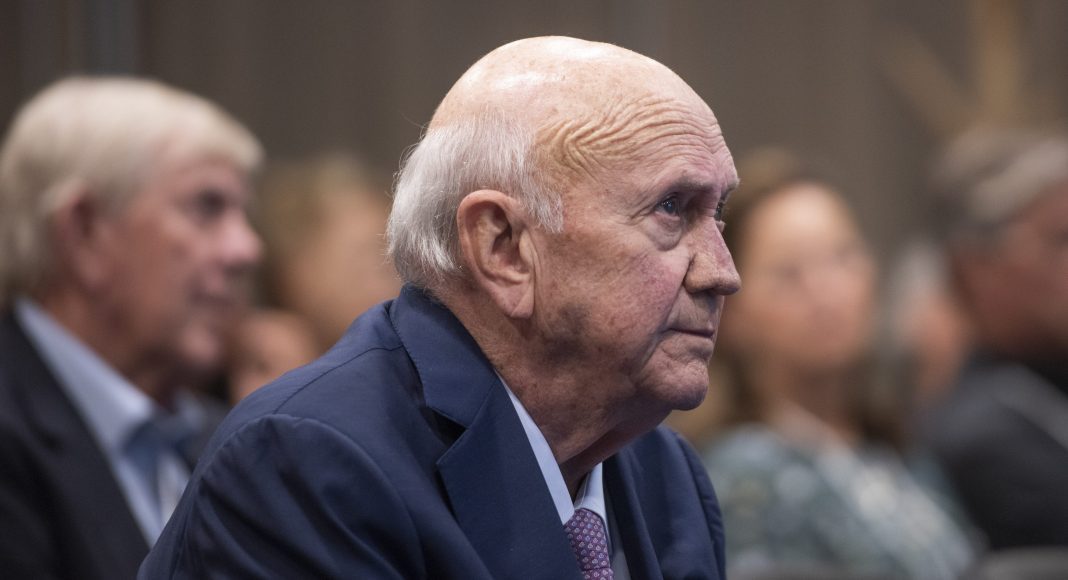Johannesburg- The death of apartheid’s president FW de Klerk heightens three things about South Africa, the fragile race relations, the elusive reconciliation, and evasive nation-building based on shared values.
There have been many diverse responses to the death of De Klerk.
They range from recognising him as being a decisive leader that championed the transition from apartheid to democracy, to an unrepentant apartheid apologist.
These responses seem to be based on where individuals find themselves in South Africa’s apartheid history and its post ’94 legacy.
For most of those that have been subjected to the brunt of apartheid discrimination and its post ’94 legacy, they feel aggrieved that De Klerk leaves with most questions unanswered.
While De Klerk in his last days apologised, his sincerity has been a subject of doubt. But then, even if he was sincere, the fact that it was more personal than a representation of the white apartheid collective leaves much to be desired.
Nevertheless, it must be said here that only socio-economic justice will satisfy the victims of apartheid.
The apartheid regime was systematic in its functionality and discrimination. Words of apology alone cannot satisfy the systematic impact of apartheid.
It is the systematic destruction of apartheid and the socio-economic growth of apartheid victims that will go a long way to redress the plight of apartheid victims. Hence reconciliation.
This is where the Truth and Reconciliation Commission fell short – the assumption that “full disclosure” by apartheid foot soldiers was a sufficient condition for reconciliation.
Taken to its highest level, the assumption by De Klerk that his apology was a necessary base for reconciliation is merely sentimental.
Reconciliation requires substantive systematic socio-economic redress in reversing the plight of apartheid victims. As it has been proverbially stated – a slave and slave master cannot be reconciled by the mere words of the slave master, but by the elevation of the
status of the slave to equality with his former master.
It is this lack of substantive socio-economic redress that makes the agenda of building the South African nation based on shared values fall flat.
Whether De Klerk as a real representation of the last apartheid bastion apologises, as long as blacks are marginalised from the mainstream gains of the country’s resources, nation-building will remain evasive.
Increased race-based inequality makes reconciliation and nation-building elusive. Similarly, increased inequality between the black masses and a minority of politically connected black elite makes nation-building just as elusive.
De Klerk’s death, therefore, reminds South Africa that while words of apologies for apartheid may be necessary, they are not sufficient. Real reconciliation and nation-building will be meaningful if based on redress for apartheid victims.
It will be meaningful if rooted in efforts geared towards absolute equality. Only equals in society can generate shared values.
De Klerk’s death is a stark reminder that the dream of a non-racial South Africa remains as elusive as it was back in the 1994 general elections.
To read more political news and views from this week’s paper, click here.
Follow @SundayWorldZA on Twitter and @sundayworldza on Instagram, or like our Facebook Page, Sunday World, by clicking here for the latest breaking news in South Africa. To Subscribe to Sunday World, click here.
Sunday World




